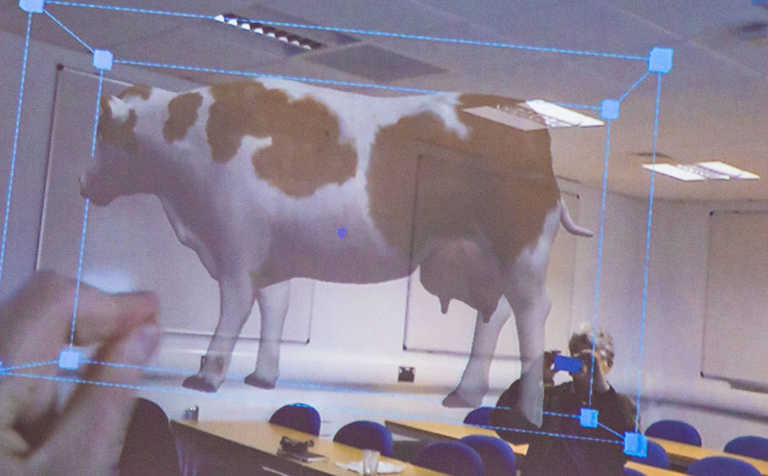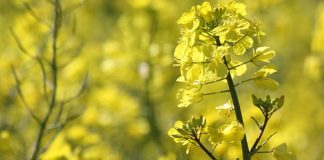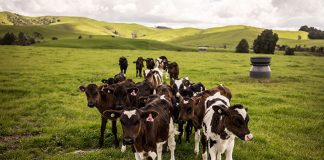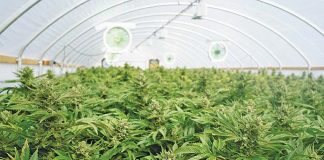
The scientists, in collaboration with Microsoft and software company, The Webinar Vet, have been working on the Bovine HoloLens project since December.
READ Performance testing: not only for stud farmers
Alison Pyatt, senior lecturer in animal science at the university, provided the researchers with images and lecture notes from dissection practical lessons.
She and other university staff recently had their first glimpse of the content, which is viewed with Microsoft HoloLens.
“We knew it could be done, but when we put on the HoloLens and really saw it, that was the ‘wow’ moment,” Pyatt said.
At this stage, the content includes views of an intact cow, its skeleton, blood flow and dissection of the udder.
“We focused on the udder to start with as it’s quite a simple structure. We’re still not down to the finer details,” Pyatt said.
The content could be used to show students what to expect before a dissecting practical and to help them revise what they had learned.
READ Young learners benefit from eco-education
While Bovine HoloLens technology was new and not yet available elsewhere, it had the potential to enhance students’ learning experience, especially if it could portray ruminants’ complex digestive systems, according to Doctor Emilliano Raffrenato, lecturer of ruminant nutrition at Stellenbosch.
“Students usually have a very hard time understanding the digestive workings and reproductive physiology of ruminants. The hologram technology might help to physically show them what’s happening to the animals during these processes,” Raffrenato said.
Dr Elsje Pieterse, lecturer of monogastric nutrition at Stellenbosch Univeristy, said that the technology could also help to save costs and time.
“By using the holograms, you won’t need to do all the prep work required before animals are dissected. And when mistakes are made, you can start over. There’s also no risk of students being exposed to diseases.”
Pieterse added that practical hands-on experience with the actual animals would nevertheless remain important, especially when studying animal management.
For more information visit www.harper-adams.ac.uk













